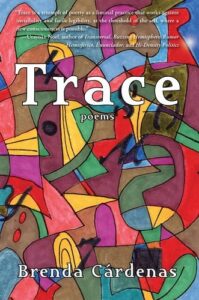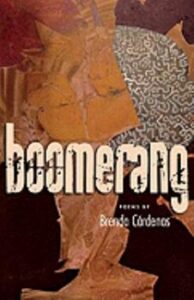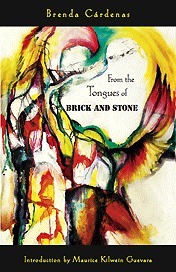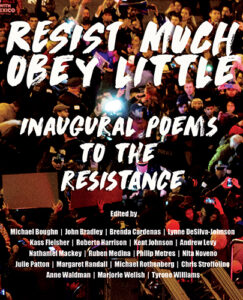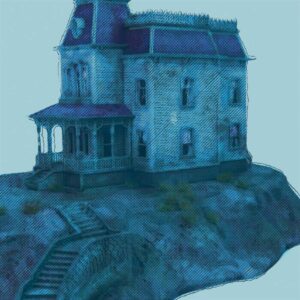Brenda Cárdenas
This Is Why
Why do we do the things we do when we’re young? Brenda Cárdenas recalls nights sneaking out of the house as a teenager, looking for highs, looking for company. “Why would you do that?” is the adult question throughout the poem. “Why wouldn’t I?” is a reply.
We’re pleased to offer Brenda Cárdenas’s poem, and invite you to connect with Poetry Unbound throughout this season.
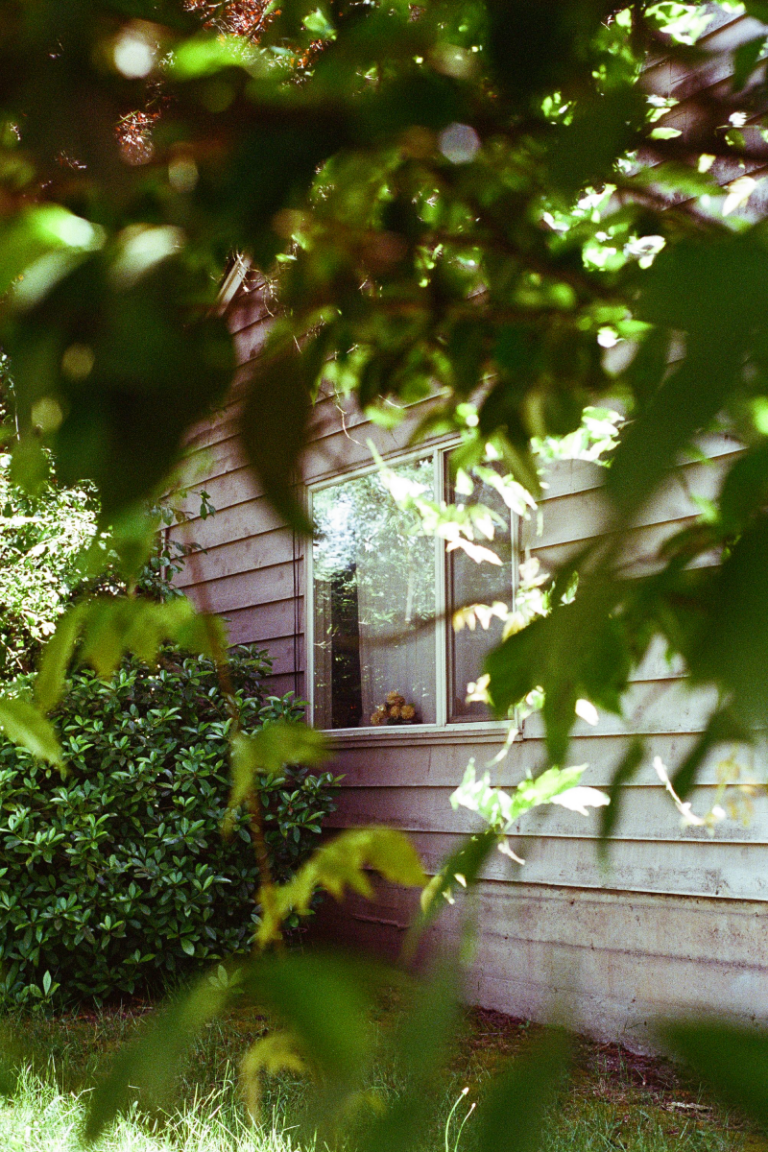
Image by Annisa Hale/ Film processed by Moody's Film Lab, © All Rights Reserved.
Guest

Brenda Cárdenas is the author of the poetry collection Trace (Red Hen Press, 2023). Cárdena’s works include Boomerang (Bilingual Press, 2009), the chapbook Bread of the Earth/The Last Colors (Decentralized Publications, 2011), co-authored with her husband Roberto Harrison, and From the Tongues of Brick and Stone (Momotombo Press, 2005). She also co-edited Resist Much/Obey Little: Inaugural Poems to the Resistance (Spuyten Duyvil Press, 2017) and Between the Heart and the Land: Latina Poets in the Midwest (MARCH/Abrazo Press, 2001). She has served as faculty for the CantoMundo writers’ retreat and as Milwaukee Poet Laureate. She currently teaches creative writing and Latinx literature at University of Wisconsin-Milwaukee. Photo by Jeanne Theoharis.
Transcript
Transcription by Alletta Cooper
[music: “Praise the Rain” by Gautam Srikishan]
Pádraig Ó Tuama: My name is Pádraig Ó Tuama, and there’s a quote that I love, and I don’t think it’s accurate, but I love it anyway. It’s attributed to Cicero, who was a Roman statesman and orator about 2200 years ago, and here’s the quote: “Times are bad. Children no longer obey their parents. And everyone is writing a book.”
You could perhaps say that everybody has a podcast these days. But why I like it is because what it highlights is the fact that it can always feel in the moment that the distance between yourself and another generation is huge, but what this quote is indicating is that that sense of distance between one generation and another is as old as humanity.
[music: “Praise the Rain” by Gautam Srikishan]
“This Is Why” by Brenda Cárdenas
“At dusk, we pulled and shoved
a patio table beneath cousin’s bedroom
window, then yawned a lot as we sat
on the couch with her dad pretending
to nod off to the evening news.
I almost said, “It’s been a long day,”
but realized that would be too much
17-year-old-going-on-50 for uncle to believe.
“We snuck off to bed where we changed
into patched Levi’s, Marijuana Pickers
Local No. 13 t-shirts, and Earth shoes.
I slid out the window first almost toppling
the table with my clumsy landing,
cousin behind me already laughing.
To the park for our weekly search, crossing
fingers that someone had dropped
their bag of weed or flicked their fat joint
when the cops circled for the second time.
“Of course, we never found the goods
lying in the grass, but we found friends
with pocketsful of other secrets
that we hid beneath our tongues
until they melted. Later, when adults ask
“Why, why would you be so reckless?”
I describe the ease of pulling myself
back up to the window ledge, gently
tumbling into bed, pulling the blanket
up to my chin as a bluster rustled
dry leaves in the sill. I explain
how I watched three pair of orange
and pink tinged maple leaves swirl
to my feet. How they unwrinkled themselves,
stood up tall, one in each couple bowing
before they raised their hands, touched
fingertips, and began to waltz to Tchaikovsky,
tangerine skirts twirling into yellow. How
elegant the soiree I witnessed at my feet.
“Why would you miss that?” I ask.”
[music: “Daybreak” by Gautam Srikishan]
I love this poem for its mentioning of family: cousin, uncle, and then these other adults as well. You can get a real sense of the generations of people in a family together. There’s that great line that I find to be a really important one when she’s saying, “I almost said, ‘It’s been a long day,’” pretending to go to sleep so that they could sneak out later on, but realize that that’ll be overacting. “Too much / 17-year-old-going-on-50 for uncle to believe.” I’ll be 50 in a few years, so I feel a certain amount of sympathy for the 50-year-olds in it and also can feel the nostalgia of the 17-year-old in it. I also feel this sense of urgency and the sense of “you don’t understand me” present in the 17-year-old in the poem.
These two cousins, of course, they sneak out, giggling already as they’re leaving. They go to the park hoping to get a bag of weed or a fat joint somebody’s pushed away if they saw the cops. But they meet “friends / with pocketsful of other secrets” that they hid beneath their “tongues / until they melted.”
And then they make their way back to the house high and go in. And there’s a certain kind of luscious experience of coming back in. She slides back in so simply and so easily. “I describe the ease of pulling myself / back up to the window ledge, gently / tumbling into bed, pulling the blanket / up to my chin as a bluster rustled / dry leaves.” Now, I would question whether her re-entry back into the house was nearly as elegant as that. I imagine that that might have been her experience of her reentry, it might have been much, much noisier. And certainly they’re discovered, because “Later, when adults ask / ‘Why, why would you be so reckless?’”
In the undergrowth of this poem is the fact that they were discovered somehow and that they’re in conversation with some adults. And there is just an extraordinary gap from 17 to 50 of experience — to experience the thrill of risk, and then the absolute petrification of thinking, “These teenagers are risking something.” These huge gaps are present in the poem and are being narrated with some whimsy that is really beguiling and draws me in hugely. But it’s also something where you come away going, “Yeah, where would I feel I would fall at different stages of my life for myself or for somebody that I had cared for?”
[music: “Great is the Contessa” by Blue Dot Sessions]
There’s serious exchange that’s going on in this poem: “17-year-old-going-on-50,” and then later on when the “adults ask, / ‘Why, why would you be so reckless?’” And then the response that comes in the final line, “‘Why would you miss that?’ I ask.” There’s something being bridged. And there’s love in the question that’s coming from the adults: “‘Why, why would you be so reckless?’” And the “why” repeated twice. You can hear the bewilderment of adults who hopefully love their teenagers, these two cousins, and are trying to say, recklessness can be reckless. Like you can enjoy it, but it can get totally out of hand. And I feel like there’s a recognition from both of them that there was recklessness. But for one, the younger people, the recklessness is about going out and enjoying everything. And for the other, the recklessness is about leaving: leaving safety, leaving comfort, leaving provision, and walking into danger. And so I don’t think anybody is debating the recklessness of what they’re doing. They are debating the value of the recklessness. [laughs] And that’s where the gap is lost.
And you wonder, what’s the poet thinking? Is the poet now closer to 50 and looking back and highlighting it? I do think the adults come across sympathetically, and at the same time, the teenagers come across with something to say. And I think in a certain sense, this isn’t a poem that’s trying to solve the moral question about what she should have done, what she shouldn’t have done. It is a poem that’s describing: this is what it’s like to grow up.
A friend of mine was once playing with his daughter. She was just over one. And she turned away to get a toy and to play with a toy by herself. And his heart broke because he thought, “She’s going to leave me.” And in an instant, his daughter was 18, was 25, was 30. And everything in him fell apart and he suddenly realized, “I’m raising somebody who’s going to leave.” And leaving for some is the exploration of life, but for the other, it’s the changing and filled with that kind of loving grief that can be so much part of moments of transition when you’re a parent or when you’re a carer or an uncle or an aunt or whoever with charge for some younger people.
So you see, in this way, that one of the things that this poem is doing is looking at hinge points of change and how hinge points of change are understood with different experiences, depending as to what age you are and what your level of responsibility is, and what risk you can see that might be engaged with through reckless behavior.
[music: “Idle Ways” by Blue Dot Sessions]
The final line of the poem, “‘Why would you miss that?’ I ask.” — the “that” is in italics in the poem. So it is, in a certain sense, guiding your — the emphasis of your voice to how you should pronounce it. But you could look at this line in a different way, “Why would you miss that?” And who’s the “you” then? Is it the reader of the poem? Is it the parents? Is this the poet speaking back to the parents going, “Didn’t you get high? And why not?” There’s something possible here. You, too, could have seen the “orange / and pink tinged maple leaves swirl / to” the feet and “unwrinkling themselves” and “bowing” these three pairs of leaves. The verbs that are associated with the leaves are extraordinary: “unwrinkled,” “bowing,” “raised,” “touched,” “waltzed,” “twirling.” It’s absolutely beautiful. “Elegant the soiree,” she says. And she’s saying: if an experience was available to you, why wouldn’t you take it?
Like this poem of great levity immediately asks you to take sides. Am I on the side of the 17-year-old? Or am I on the side of the 50-year-old? And when we were recording this episode, one of the producers said to me, “Whose side are you on? And depending as to which one you answer, you’re a narc.” So even in the playful association of that, the projection into it, the poem is putting us into serious questions about how we understand the world, how we understand difference, the gaps between us, and quietly asking, “Are they bridgeable?”
And it’s a powerful question because it asks us the question about, what do we do that’s simply the opportunity in front of us? Do we weigh up the consequences of everything? Where is the place of risk? Where is the place of stepping outside? And where is the place of distantiation, creating space between yourself and who it is that says to you, “This is what you definitely shouldn’t do?” It’s a theme as old as time. Book of Genesis: Don’t eat from the tree. And then they eat from the tree. So in a certain sense, this poem is tapping into something that for generations, millennia and millennia, world literature has been asking about the relationship between authority and freedom.
[music: “Into the Earth” by Gautam Srikishan]
One of the temptations I think in writing poetry is to think that poetry has to have a message and that the message has to be tidied up in the end. And this is a poem that comes across with great levity, and it’s lovely to read a poem like this that has levity. In the back of my mind, I think of all the people who would think, “Well, our experience and our family about that has got nothing to do with levity, it’s got to do with devastation.” And therefore this is a clever and brave poem because it’s not trying to say, “Here’s what everybody should do. Here is the message, children.” Brenda Cárdenas is not lecturing through the poem. It is not a poem of apology, and I think that’s very brave for a piece of art to do that.
And one of the things that makes me nervous is when there can be the imagination that art has to say, “And here’s the take-home message at the end.” And this poem is saying, “There isn’t.” It’s just left with the question: “‘Why would you miss that?’”
[music: “Into the Earth” by Gautam Srikishan]
“This Is Why” by Brenda Cárdenas
“At dusk, we pulled and shoved
a patio table beneath cousin’s bedroom
window, then yawned a lot as we sat
on the couch with her dad pretending
to nod off to the evening news.
I almost said, “It’s been a long day,”
but realized that would be too much
17-year-old-going-on-50 for uncle to believe.
“We snuck off to bed where we changed
into patched Levi’s, Marijuana Pickers
Local No. 13 t-shirts, and Earth shoes.
I slid out the window first almost toppling
the table with my clumsy landing,
cousin behind me already laughing.
To the park for our weekly search, crossing
fingers that someone had dropped
their bag of weed or flicked their fat joint
when the cops circled for the second time.
“Of course, we never found the goods
lying in the grass, but we found friends
with pocketsful of other secrets
that we hid beneath our tongues
until they melted. Later, when adults ask
“Why, why would you be so reckless?”
I describe the ease of pulling myself
back up to the window ledge, gently
tumbling into bed, pulling the blanket
up to my chin as a bluster rustled
dry leaves in the sill. I explain
how I watched three pair of orange
and pink tinged maple leaves swirl
to my feet. How they unwrinkled themselves,
stood up tall, one in each couple bowing
before they raised their hands, touched
fingertips, and began to waltz to Tchaikovsky,
tangerine skirts twirling into yellow. How
elegant the soiree I witnessed at my feet.
“Why would you miss that?” I ask.”
[music: “Praise the Rain” by Gautam Srikishan]
Chris Heagle: “This Is Why” comes from Brenda Cárdenas’s book Trace. Thank you to Red Hen Press who gave us permission to use Brenda’s poem. Read it on our website at onbeing.org.
[music: “Praise the Rain” by Gautam Srikishan]
Poetry Unbound is: Gautam Srikishan, Eddie Gonzalez, Lilian Vo, Lucas Johnson, Amy Chatelaine, Kayla Edwards, Annisa Hale, and me, Chris Heagle.
Our music is composed and provided by Gautam Srikishan and Blue Dot Sessions.
This podcast is produced by On Being Studios, which is located on Dakota land. Open your world to poetry with us by subscribing to our Substack newsletter. You may also enjoy Pádraig’s new book, Poetry Unbound: 50 Poems to Open Your World. For links and to find out more visit poetryunbound.org.
Books & Music
Recommended Reading
The On Being Project is an affiliate partner of Bookshop.org and Amazon.com. Any earnings we receive through these affiliate partnerships go into directly supporting The On Being Project.





